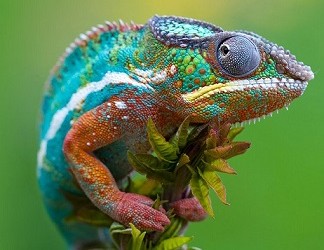Stamp: Year of the Rat 2020 - Zodiac Sheet - Dragon (Christmas Island 2020)
Year of the Rat 2020 - Zodiac Sheet - Dragon (Christmas Island 2020)
08 January (Christmas Island ) within release Chinese New Year 2020 - Year of the Rat goes into circulation Stamp Year of the Rat 2020 - Zodiac Sheet - Dragon face value 70 Australian cent
| Stamp Year of the Rat 2020 - Zodiac Sheet - Dragon in catalogues | |
|---|---|
| Stamp Number: | Sn: CX 592h |
| Yvert et Tellier: | Yt: CX 923 |
Stamp is square format.
1 of 12 off the Lunar New Year 2020 year of the Rat Zodiac SheetletAlso in the issue Chinese New Year 2020 - Year of the Rat:
- Stamp - Rat face value 1;
- Stamp - Year of the Rat 2020 - Rat with fan face value 1.10;
- Stamp - Year of the Rat 2020 - Rat with red robe face value 2.50;
- Stamp - Year of the Rat 2020 - Rat with bowl face value 3.30;
- Stamp - Year of the Rat 2020 - Rat with fan - Diamond face value 1.10;
- Stamp - Year of the Rat 2020 - Rat with red robe - Diamond face value 2.50;
- Stamp - Year of the Rat 2020 - Rat with bowl - Diamond face value 3.30;
- Souvenir Sheet - Year of the Rat 2020 souvenir sheet face value 6.90;
- Stamp - Year of the Rat 2020 - Zodiac Sheet - Ox face value 10;
- Stamp - Year of the Rat 2020 - Zodiac Sheet - Goat face value 10;
- Stamp - Year of the Rat 2020 - Zodiac Sheet - Dog face value 10;
- Stamp - Year of the Rat 2020 - Zodiac Sheet - Rabbit face value 50;
- Stamp - Year of the Rat 2020 - Zodiac Sheet - Horse face value 50;
- Stamp - Year of the Rat 2020 - Zodiac Sheet - Monkey face value 50;
- Stamp - Year of the Rat 2020 - Zodiac Sheet - Tiger face value 70;
- Stamp - Year of the Rat 2020 - Zodiac Sheet - Dragon face value 70;
- Stamp - Year of the Rat 2020 - Zodiac Sheet - Rooster face value 70;
- Stamp - Year of the Rat 2020 - Zodiac Sheet - Rat face value 1;
- Stamp - Year of the Rat 2020 - Zodiac Sheet - Snake face value 1;
- Stamp - Year of the Rat 2020 - Zodiac Sheet - Pig face value 1;
- Mini Sheet - Year of the Rat 2020 mini sheet face value 13.80;
- Stamp - Year of the Rat 2020 - Rat with red robe face value 2.50;
- Stamp - Ox face value 10;
- Mini Sheet - Lunar New Year 2020 Circular mini sheet face value 14.90;
- Stamp - Goat face value 10;
- Stamp - Dog face value 10;
- Stamp - Rabbit face value 50;
- Stamp - Horse face value 50;
- Stamp - Monkey face value 50;
- Stamp - Tiger face value 70;
- Stamp - Dragon face value 70;
- Stamp - Rooster face value 70;
- Stamp - Snake face value 1;
- Stamp - Pig face value 1;
- Stamp - Lunar New Year - Calendar Sheetlet - Hub face value 8;
- Gutter Pairs - Year of the Rat 2020 - gutter strip face value 11;
Stamp Year of the Rat 2020 - Zodiac Sheet - Dragon it reflects the thematic directions:
Animals are multicellular, eukaryotic organisms of the kingdom Animalia (also called Metazoa). All animals are motile, meaning they can move spontaneously and independently, at some point in their lives. Their body plan eventually becomes fixed as they develop, although some undergo a process of metamorphosis later on in their lives. All animals are heterotrophs: they must ingest other organisms or their products for sustenance.
A calendar is a system of organizing days. This is done by giving names to periods of time, typically days, weeks, months and years. A date is the designation of a single and specific day within such a system. A calendar is also a physical record (often paper) of such a system. A calendar can also mean a list of planned events, such as a court calendar, or a partly or fully chronological list of documents, such as a calendar of wills.
Chinese New Year or the Spring Festival (see also § Names) is a festival that celebrates the beginning of a new year on the traditional lunisolar Chinese calendar. Marking the end of winter and the beginning of spring, observances traditionally take place from Chinese New Year's Eve, the evening preceding the first day of the year, to the Lantern Festival, held on the 15th day of the year. The first day of Chinese New Year begins on the new moon that appears between 21 January and 20 February
A dragon is a magical legendary creature that appears in the folklore of multiple cultures worldwide. Beliefs about dragons vary considerably through regions, but dragons in Western cultures since the High Middle Ages have often been depicted as winged, horned, and capable of breathing fire. Dragons in eastern cultures are usually depicted as wingless, four-legged, serpentine creatures with above-average intelligence. Commonalities between dragons' traits are often a hybridization of feline, reptilian, mammalian, and avian features. Some scholars believe large extinct or migrating crocodiles bear the closest resemblance, especially when encountered in forested or swampy areas, and are most likely the template of modern Asian dragon imagery
Reptiles are tetrapod (four-limbed vertebrate) animals in the class Reptilia, comprising today's turtles, crocodilians, snakes, amphisbaenians, lizards, tuatara, and their extinct relatives. The study of these traditional reptile orders, historically combined with that of modern amphibians, is called herpetology. Because some reptiles are more closely related to birds than they are to other reptiles (e.g., crocodiles are more closely related to birds than they are to lizards), the traditional groups of "reptiles" listed above do not together constitute a monophyletic grouping (or clade). For this reason, many modern scientists prefer to consider the birds part of Reptilia as well, thereby making Reptilia a monophyletic class.
The zodiac is a belt-shaped region of the sky that extends approximately 8° north and south (as measured in celestial latitude) of the ecliptic, the apparent path of the Sun across the celestial sphere over the course of the year. Also within this zodiac belt appear the Moon and the brightest planets, along their orbital planes. The zodiac is divided along the ecliptic into 12 equal parts ("signs"), each occupying 30° of celestial longitude. These signs roughly correspond to the astronomical constellations with the following modern names: Aries, Taurus, Gemini, Cancer, Leo, Virgo, Libra, Scorpio, Sagittarius, Capricorn, Aquarius, and Pisces.








